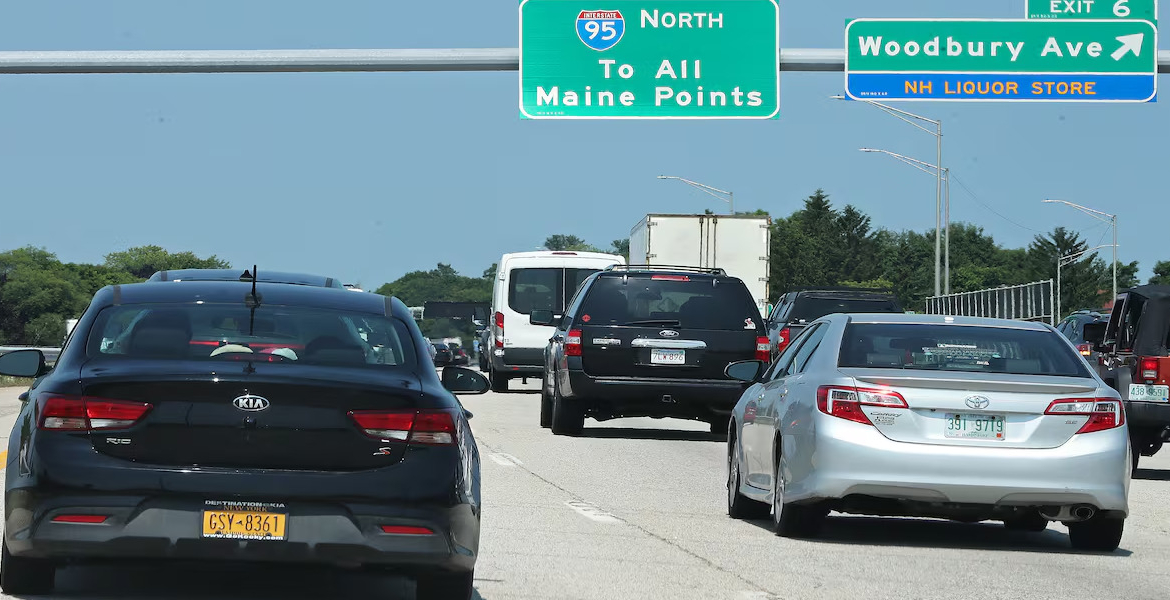Bill Seeks to Block Driving Privileges for Undocumented Immigrants Without Green Cards

The New Hampshire House recently deliberated on a bill that could significantly restrict driving privileges for asylum seekers in the state, alongside proposed housing legislation aimed at addressing the state's housing crisis.
Senate Bill 13, which passed the House with a 192-164 vote, seeks to limit the recognition of out-of-state driver’s licenses and privilege cards issued to undocumented immigrants. Concurrently, two key housing bills, House Bill 170 and House Bill 174, were tabled, indicating ongoing divisions on how to tackle the state's housing shortage.
Senate Bill 13: Driving Privileges for Asylum Seekers
Under the proposed legislation, asylum seekers holding driver’s licenses issued by other states would no longer be legally authorised to drive in New Hampshire unless they possess a green card. The bill would not permit law enforcement to stop drivers solely on suspicion of being undocumented. However, critics argue the measure could create obstacles for individuals lawfully residing in the United States.
Representative Daniel Veilleux (D-Amherst) emphasised that asylum seekers' presence in the country is a lawful designation by federal authorities, not a loophole. Opponents contended that restricting driver’s license recognition effectively bars asylum seekers from employment in a state where car ownership is often necessary to access job opportunities.
Representative Seth Miller (D-Dover) highlighted the broader implications of limiting the mobility of asylum seekers, noting that preventing individuals from working ultimately harms businesses, local economies, and communities. He urged lawmakers to consider the humanitarian and economic consequences of the bill, suggesting that restricting driving privileges diminishes residents' ability to participate in society and build stable lives.
Supporters of the bill, however, argued that it establishes necessary safeguards against unverified asylum claims and ensures that driver’s licenses are granted only to individuals who have fully met legal residency requirements. Representative Thomas Walsh (R-Hooksett) raised concerns about fraudulent asylum claims, arguing that providing driving privileges before an immigration case is fully resolved is premature and could create logistical and legal complications.
The bill, having passed the House with amendments, will return to the Senate for further consideration. If enacted, the measure would align New Hampshire with other states that limit undocumented immigrants' access to driving privileges, signalling a stricter stance on immigration policies in the region.
Addressing the State’s Housing Shortage
The New Hampshire House also considered proposed housing legislation aimed at addressing the state’s ongoing housing crisis. House Bill 170 sought to establish statewide zoning and planning regulations aimed at encouraging residential construction and expanding affordable housing options. The bill would have prohibited municipalities from imposing occupancy restrictions, authorised the installation of underground utilities in open space and buffer zones, and required local planning boards to provide written recommendations to developers.
Representative Brian Cole (R-Manchester) argued that these measures would reduce arbitrary regulatory barriers and streamline development processes to facilitate greater access to housing. Opponents, however, expressed concerns that such reforms would undermine local control over zoning decisions and fail to account for environmental factors unique to different communities. Critics noted that a uniform approach to housing regulations does not consider towns’ specific geographical and infrastructural constraints, such as high water tables and soil composition.
Similarly, House Bill 174 aimed to remove planning boards’ ability to consider the number of bedrooms in a proposed development when evaluating housing projects. Proponents argued that such provisions would prevent unnecessary restrictions on housing supply, enabling greater flexibility for developers to meet demand. Yet, opponents characterised the bill as an overreach that disregards local input and planning prerogatives.
Both housing bills were ultimately tabled, signalling ongoing divisions over how best to address New Hampshire’s housing shortage. While proponents view regulatory reforms as essential for facilitating growth, opponents caution against sweeping measures that could reshape communities without adequate consideration of local interests.








Add new comment